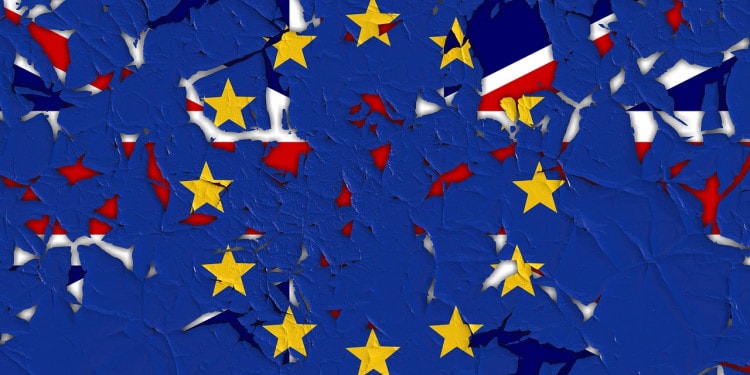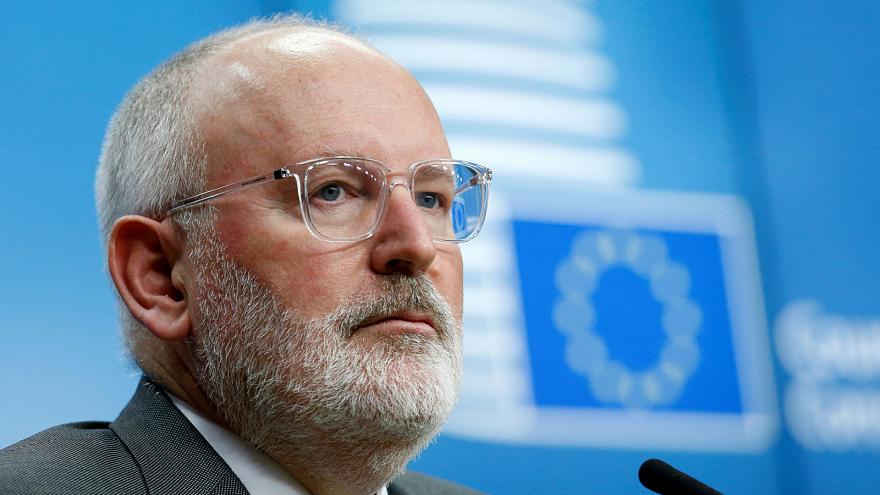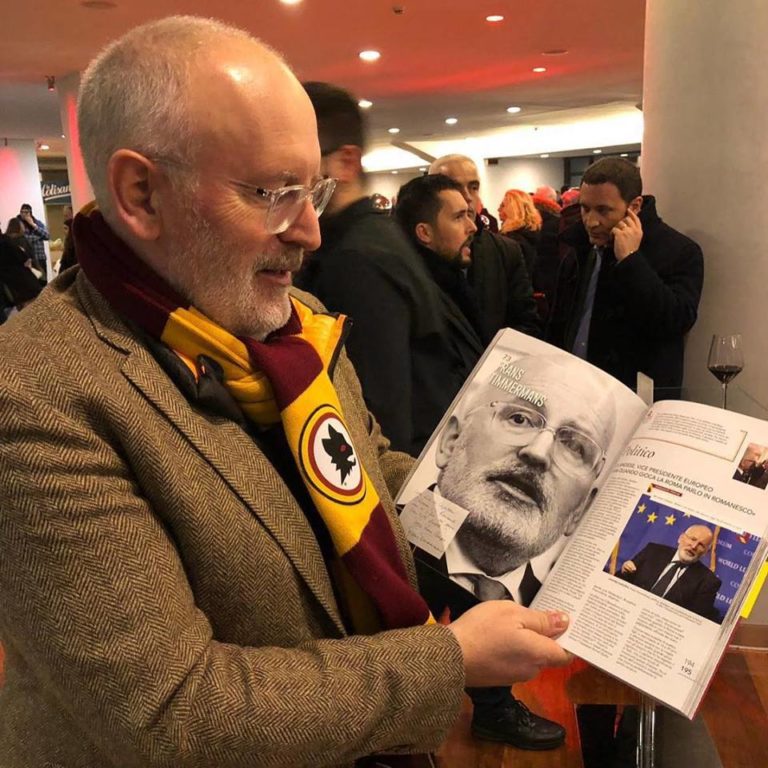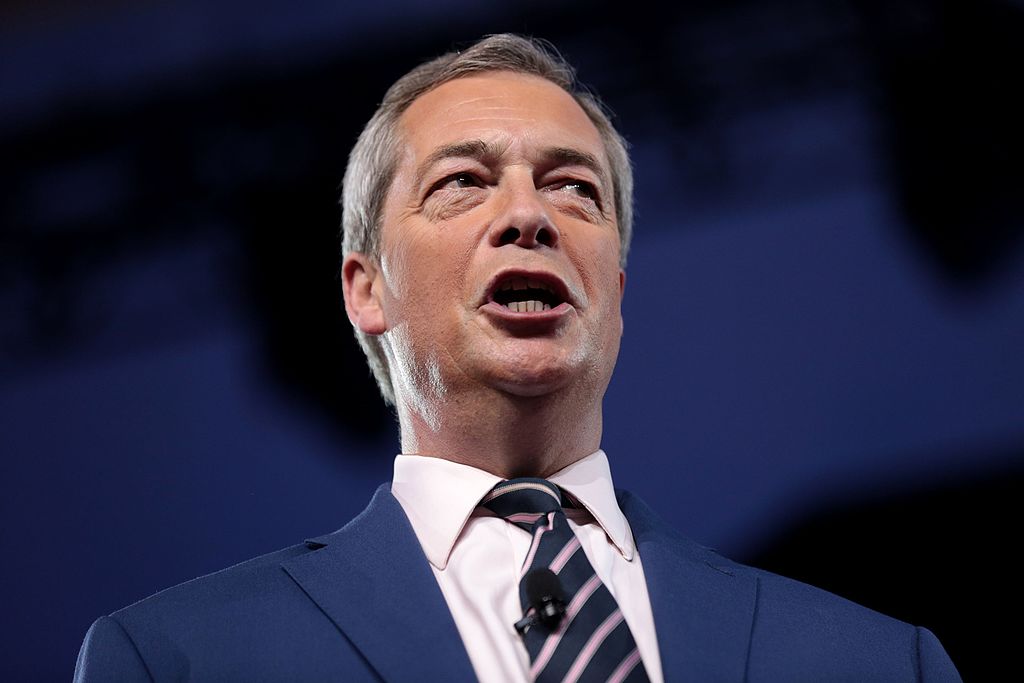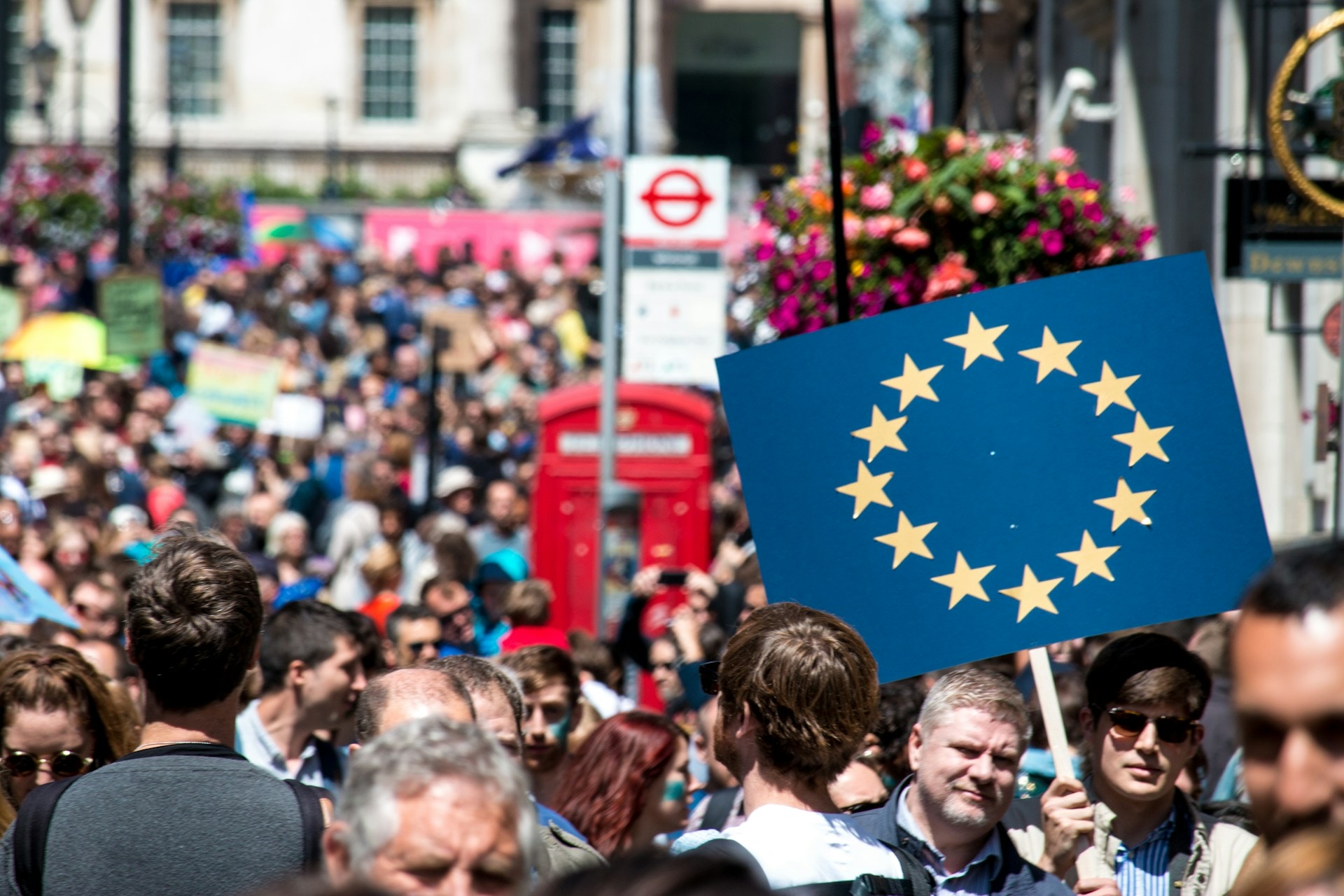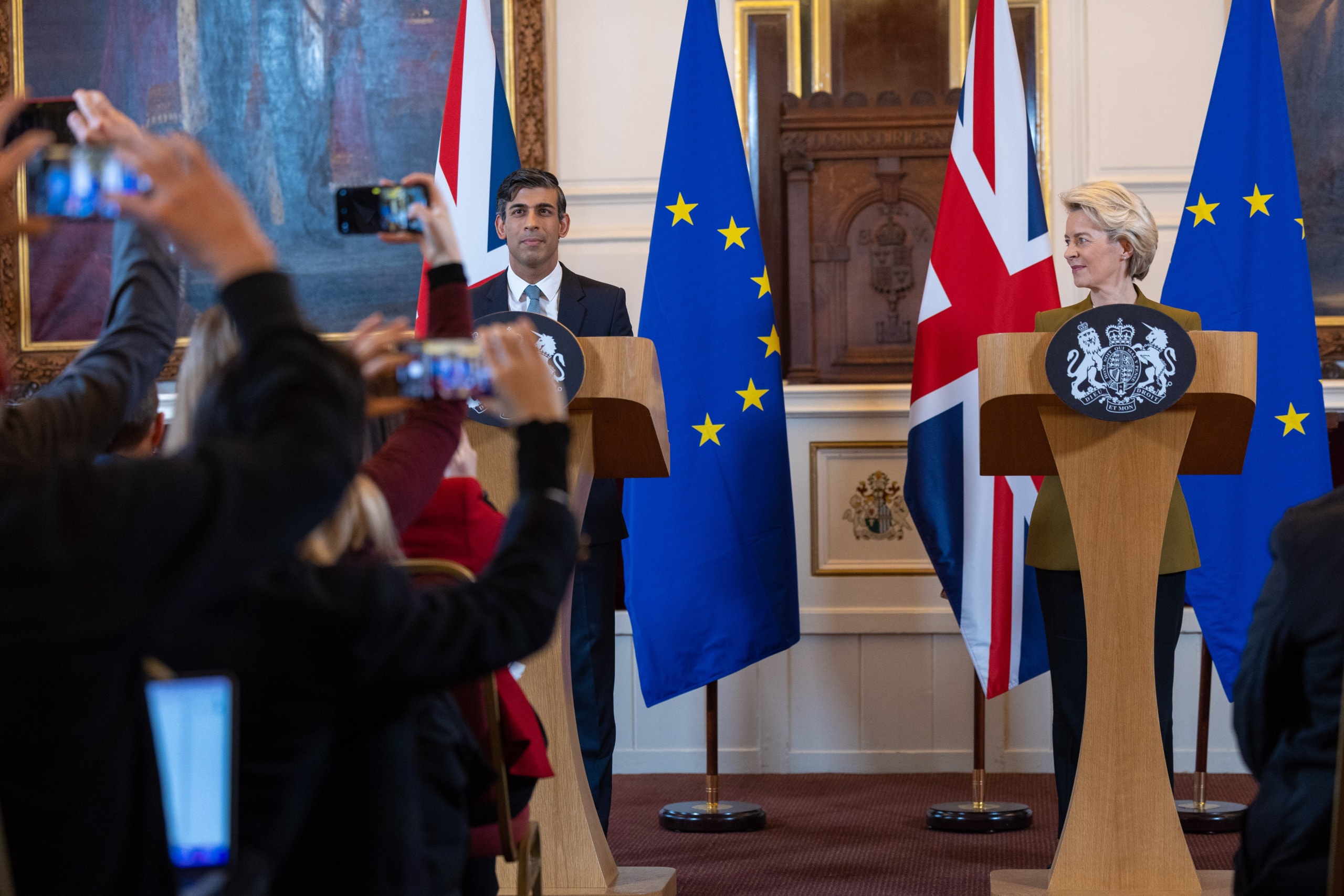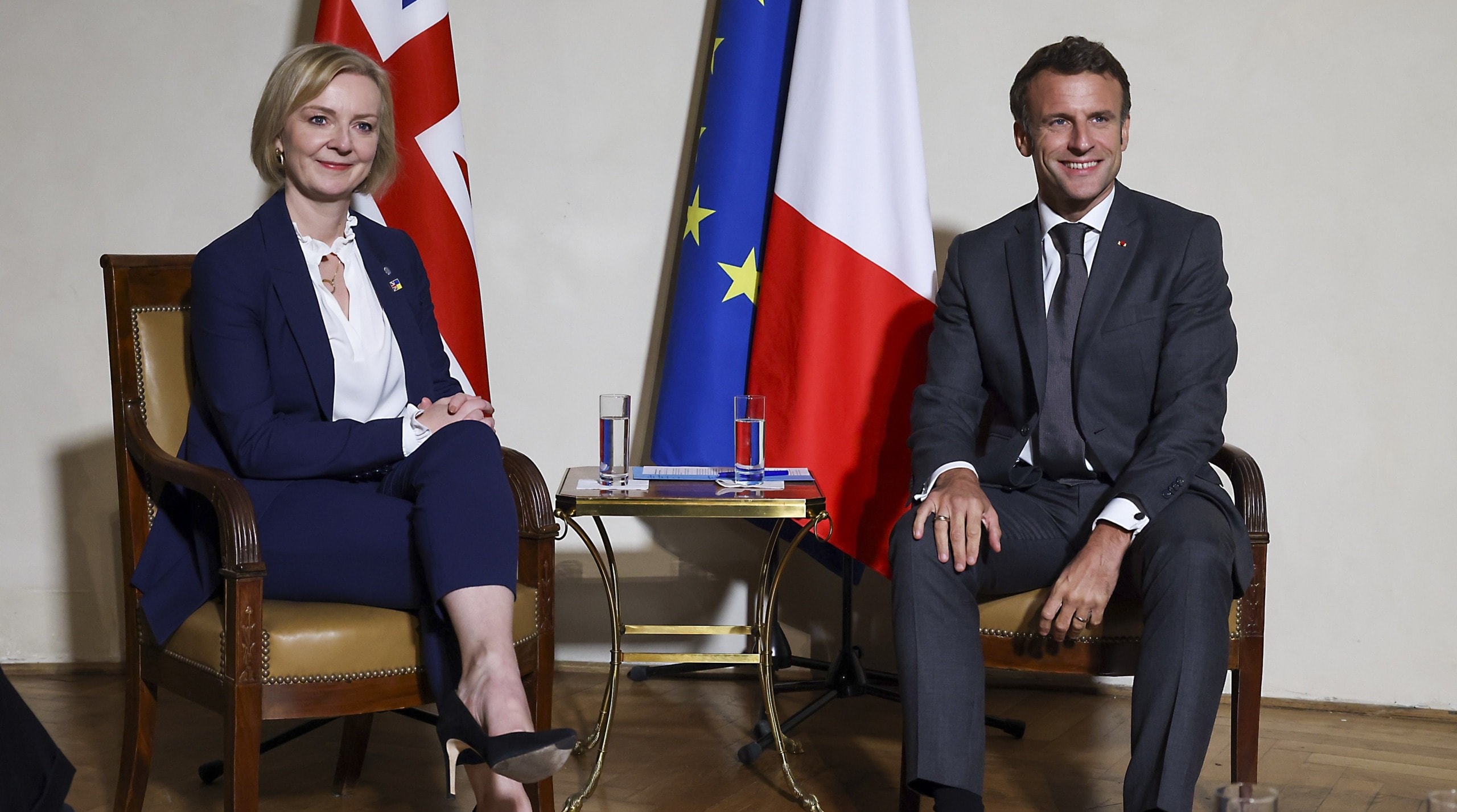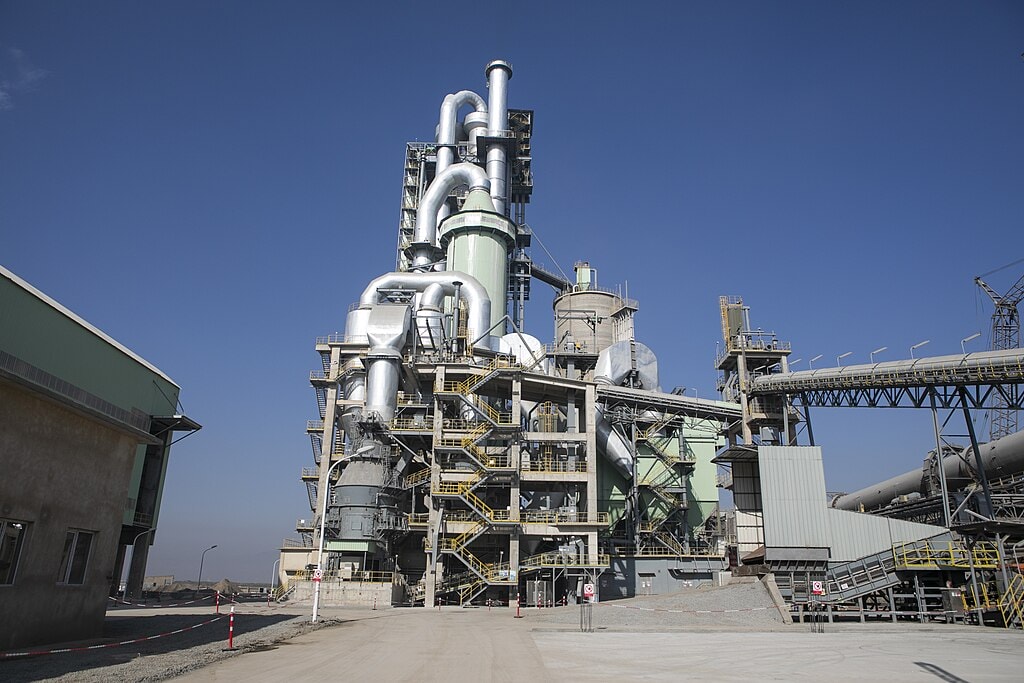Three politicians stand out in the upcoming European Parliament Elections: Katharina Schulze (Green), Frans Timmermans (Socialist) and Nigel Farage (Brexit). Here is their portrait drawn by Impakter Italia:
Katharina Schulze
According to the latest polls, the Greens (Grünen) are the second party in Germany and their rise, already sanctioned by the elections for the Land last October, seems to be the best antidote against Alternative Für Deutschland‘s sovereignty.
Behind the Grünen rebirth, there is the face and determination of Katharina “Katha” Schulze, enfant prodige of German politics. 33 years old, a degree in political science and another in psychology, Katharina was born in Freiburg but grew up in Herrsching am Ammersee, a small town in Bavaria, not far from Munich.
Katharina joined the Green youth movement in 2008, following a stay in the United States where she took part in Obama’s first election campaign, and after only five years she was already elected to the regional parliament, where she was re-elected in 2018, with the party that, with her as group leader,, went from 8.6% to 17.5%.
Uninhibited on video, where she always appears smiling, and skilled in speeches – qualities that have earned her the prize of best German speaker from the circle of Bavarian speakers – Katharina Schulze owes her success to the ability to perfectly combine her presence on social networks and the one on the ground.
The American elections of 2008, in fact, convinced her that “door to door” meetings with voters is fundamental: “The first time I knocked on 4,000 doors, the second time on 10,000,” she said after the elections. It is not surprising, therefore, that German newspapers have given her the nickname “Duracell”.
Very active also on Twitter and Instagram, Katharina Schulze alternates photos of political events, Bavarian landscapes and ice creams, her great passion. A passion that has cost her her first and only slip. On 2 January this year, in fact, she posted a photo of herself eating from an ice cream cup accompanied by the words “Starting the year right”, but her constituents did not forgive her plastic spoon and the disposable paper cup.
On Instagram she can also be seen with the body completely painted in blue, disguised as Neytiri, the princess of the imaginary Na’vi people, protagonist of Avatar, the film with the strong environmental footprint given by its director James Cameron.
A strong Europeanist, supporter of open borders and in favor of immigration with controls and a reception process, she presented herself at the polling stations on the occasion of the Bavarian elections last October with a shirt bearing the inscription: “mi heimat es su heimat”, “my house is your house”.
Frans Timmermans
At a time of great difficulty, due to the loss of consensus and the advances of the sovereign rights, the European socialists have chosen the Dutchman Frans Timmermans as a candidate for president of the European Commission for the next elections. 58 years old, born in Maastricht, the Dutch town where the treaty that set the rules for joining the EU was signed in 1992, Timmermans has a brilliant diplomatic and political career behind him and is currently vice president of the European Commission.
Known by the nickname “Frans”, diminutive of the cumbersome Franciscus Cornelis Gerardus Maria, Timmermans has a very close relationship with Italy where he spent his adolescence. In 1972, at the age of 11, Frans moved to Rome and attended St George’s British International School to follow his father, an employee at the Dutch embassy. Here he learned Italian and developed his great passion for Rome.
One Sunday, secretly from his parents, he went to the Olympic stadium and fell in love with the local Giallorossi football team. On his Facebook profile he often posted photos of the stadium and proudly showed the autographed shirt of Francesco Totti, a gift from Sandro Gozi, Undersecretary for European Affairs during the Renzi government.
In 2014, on the occasion of a congress of the PSE in Rome, he surprised everyone when he took the stage and uttered these words:
“Where is the soul of our Europe? Certainly not in congresses, certainly not in political parties, certainly not in the European Parliament or in the Council of Ministers. I will see the soul of our Europe tonight when I go to the Olympic stadium to see the Roma that wins against Inter. Eh! I’m sorry but I’ve been a Roman artist for forty years. “
A graduate in French Language and Literature, he speaks Italian, French, German, and English and Russian, a language he learned in Moscow, where he moved in 1990 to serve as a diplomat at the embassy.
When he was the Dutch Foreign Minister, Timmermans spent a lot of time from 2012 to 2014 to shed light on the downing of the Malaysia Airlines flight 17 in the Ukrainian skies, in which 193 of his fellow citizens lost their lives. And he obtained new sanctions against Russia.
When he took on the post of European Commissioner for Better Legislation, Inter-institutional Relations, the Rule of Law and the Charter of Fundamental Rights, he was deeply concerned by the advances of Eurosceptics and he repeatedly criticized the Visegrad group.
[Translator’s note: His fluency in Italian, his love for Italy and for Europe cannot be doubted]
In the traditional debate between the candidates for the Commission, staged on May 15, he had some harsh words against the Italian populist government led by Conte:
“Europe loses a little bit of its soul when a man dies in the Mediterranean. The migrants must be saved and you cannot impose fines on those who save them, what the Italian government does is unacceptable. “
Farage, the Brexit man who returns to win against Europe
Provoking Brexit and leaving the scene. To then return to the stage, as a great protagonist, to get Brexit going again. And win. The eccentric Nigel Farage may not arouse great sympathy among his detractors, but no one can deny that he has political flair. A tactic that allowed him to win victories beyond all expectations.
So, after a semi-oblivion parenthesis, he is now at the head of the Brexit Party, which could be the most voted in the United Kingdom at the next European Elections: the latest survey credits the party with a consensus well above 30%, at 34% to be precise, with a 13 percentage point advantage over Jeremy Corbyn’s Labor party. And Labor just a few months ago appeared safe to win the elections.
Farage’s love-hate for Europe
Euroscepticism is the business name of Farage’s political strategy.
His career is closely linked with Brussels: Paradoxically he has been elected as a Member of the European Parliament (MEP) four times, without interruption since 1999. The desire to leave the European Union is therefore the basis of his success. So much so that the Ukip, the independentist party, in 2014 won 27.5% of the votes, electing twenty-four MEPs and consecrating Farage as a leader worthy of attention and not just the creator of over the top jokes.
The push towards Brexit came from there, from an avalanche of consensus that forced then-Prime Minister David Cameron to propose a referendum, convinced this was a way to put a stop to Farage’s ambitions. Instead, the June 2016 consultation on the “Leave” or “Remain” finished as everyone knows.
Then, in July, Farage decided to abandon the leadership of the UK Independence party (Ukip). In fact, as soon as he had realized his political dream, he left the scene, attracting criticism from his opponents who accused him of escaping in the face of the difficulties resulting from Brexit. Yet he did not allow himself to fall apart, alleging differences caused by an Islamophobic drift of his party, and he acted as a spectator interested in the complicated negotiations for the exit of the U.K. from the European Union.
But who is Nigel Farage?
Often portrayed smiling, with a pint of beer in his hands, the typically British traits and middle-class habits are characteristic elements of Farage’s public image. Cameron labeled him a “clown”, trying to draw attention to the (lack of) credibility of what turned out to be a bitter political rival. The worst for him, undermining his career. The Eurosceptic leader, 55, had a linear, almost obsessive goal: In 1992 he left the Conservatives following the signing of the Maastricht Treaty, and he continued onward with his own stubborn anti-European convictions.
A leap in quality took place in 2006, when he became the Ukip leader until 2009. After Malcom Pearson’s one-year interregnum, Farage returned to take the reins in the party: Since 2010, it has been a triumphant ride culminating in the 2014 European Elections. However, following this, there was a constant decline, as shown by the 2015 British political elections when UKIP stopped at 12.6%.
Politically, Farage’s position shifted to the right, even though he broke with Ukip because of the excessive extremist party drift: “Women are worth less, it is fair that they should earn less, they go on maternity leave”, is one of his most often quoted pronouncements. Just as his aversion to immigration is well known. He claims that Brexit was caused precisely by the arrival of too many foreigners.
What is the Brexit Party
The Brexit Party overturned the scene of British politics: Founded in early 2019, it immediately jumped to the top of the polls. The founder was Catherine Blaiklock, who however resigned following Islamophobic statements. Farage was committed to the project from the start. However, he immediately pointed out that he was not intent on making the same mistakes Ukip had made on Islamophobia.
The Brexit Party has thus mainly focused on businessmen, strong supporters of the need to carry on leaving the Union. A model of a party less ruthless and more focused on the construction of a ruling class, able to turn to its own advantage the worries of Tories torn by the weak leadership of Theresa May. So the man that for Cameron was just a “clown” managed to survive political leaders better known than he was in the past. In short, a successful clown.
This article is part of an editorial collaboration with Impakter Italia.


